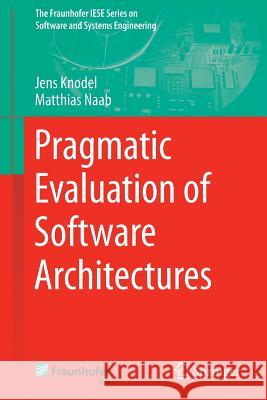Pragmatic Evaluation of Software Architectures » książka
topmenu
Pragmatic Evaluation of Software Architectures
ISBN-13: 9783319341767 / Angielski / Miękka / 2016 / 154 str.
Kategorie:
Kategorie BISAC:
Wydawca:
Springer
Seria wydawnicza:
Język:
Angielski
ISBN-13:
9783319341767
Rok wydania:
2016
Wydanie:
2016
Numer serii:
000450011
Ilość stron:
154
Waga:
0.26 kg
Wymiary:
23.39 x 15.6 x 0.97
Oprawa:
Miękka
Wolumenów:
01
Dodatkowe informacje:
Bibliografia
Wydanie ilustrowane
Wydanie ilustrowane











